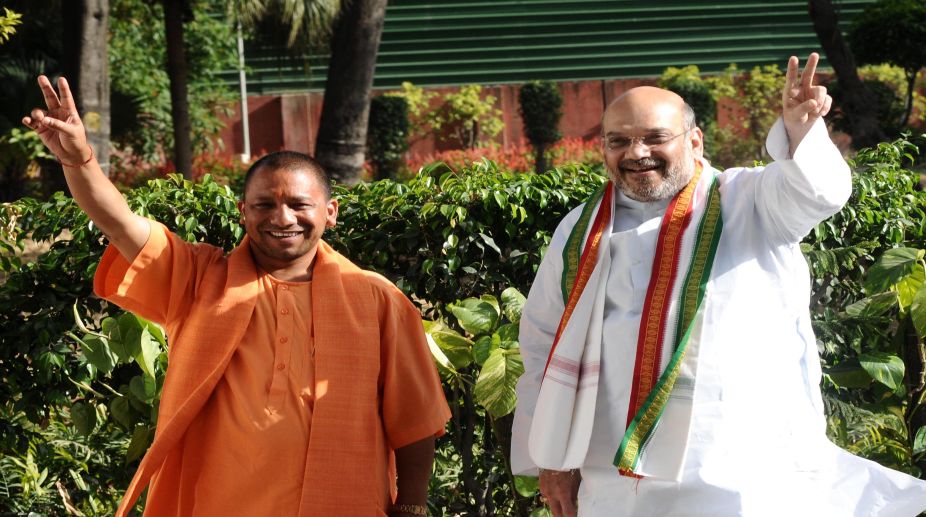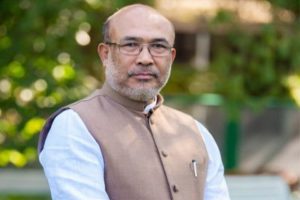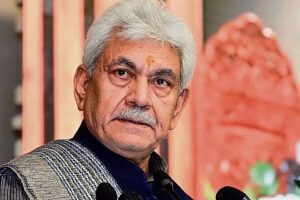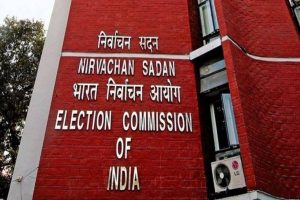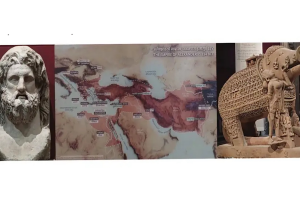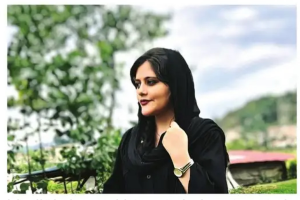The phenomenal victory of the Bharatiya Janata Party in Uttar Pradesh has surpassed the figures projected by various exit polls, and has almost fooled political pundits. The outcome can rightly be viewed as a tectonic shift in the country’s political landscape, whose aftershocks will continue to reverberate across the political spectrum. Amidst the euphoria in the BJP camp, despair among Akhilesh-Rahul gatbandhan supporters and a sense of foreboding among the Left-liberal forces, apprehensive of further accentuation of the communal divide, myriad interpretations of the verdict are being offered.
What has come through is the mesmerizing magic of Narendra Modi’s charisma, his perceived metamorphosis from the Modi of Gujarat, who suffered the ignominy of being the alleged perpetrator of a genocide to a benevolent mass leader, who is strong, capable of taking risky decisions and shouldering the responsibility of its fallout independently, a leader who seems to be keen on delivering and making a difference in the lives of India’s teeming millions. This election has been a lot about Modi than about any other factor. The jury might be still out on the question of demonetisation as a policy decision, but it has worked well as a political move.
Politics is a game of perception and the masterfully crafted persona of Modi as almost a Yugpursh has purportedly dealt a severe blow to the hoarders of ill-gotten black money, the local money lenders, thanedars, landlords, contractors, lawyers or even doctors, who, for the poor, dispossessed men and women of rural India are the tormentors. This impression has captured the imagination of millions. Through extensive visibility of a Prime Minister repeating again and again his resolve to work for the garib aadmi, through the reiteration of the professed mantra, Sabka sath, sabka vikas, Modi has hijacked the ‘pro development’ plank of the Opposition. Expressing a willingness to do away with ‘triple talaq’ has helped him to win the support of Muslim women and reports suggest that a sizeable chunk of the community voted for Modi.
The introduction of a gender-related issue by the BJP, even if one grants the allegation of the Opposition that it is a mischievous move and hides the party’s real intention to heighten the binaries of Hindu and Muslim social practices, is a first of its kind. It was a move that has yielded impressive results as it gave vent to the aspirations of women of minority communities to gain access to a better life which is now within the reach of some of their sisters from the majority community.
The Akhilesh-Rahul gatbandhan failed to take off for a variety of reasons. The Akhilesh government’s policy of distributing freebies instead of creating more employment opportunities deepened frustration even among the traditional support base of the Samajwadi Party, particularly among the youth. The family drama and the rift between father and son worsened matters. The state’s rising crime graph during his chief ministership, particularly the heinous crimes against women, the low rate of conviction of criminals, and the fielding of a character called Gyatri Praajapati ~ facing a rape charge ~ scuppered the prospects of the outgoing Chief Minister. The scion of the Gandhi family is increasingly viewed as incapable of delivering as the BJP acolytes mock his sudden trips abroad as signs of a weakling who can’t stand the heat of politics, and a person who is neither serious nor committed.
Meticulous planning and execution of a strategy to negotiate the complex matrix of caste and community in Uttar Pradesh by the BJP president Amit Shah, indeed a process that began right after the 2014 election, is another key factor behind his party’s spectacular performance against which the belated alliance of SP and Congress turned out to be quite insipid. Among the other factors can be listed a vigorous drive to induct new members, numerous meetings and road-shows, a religious march, ‘Dharma Chetana Yatra’ led by a Buddhist monk, a clear signal to the Dalit community that they stand to gain from abandoning Mawawati, steeped in corruption charges, and jumping onto the bandwagon of the BJP, numerous moves to consolidate the upper caste Hindu vote through controlled but somewhat muted use of the Ram Mandir issue, making Modi omnipresent in the cyber world through the well calibrated effort of an army of paid techies, Amit Shah did all it takes to ensure success.
The kabarsthan jibe and ‘more electricity during Ramzan’ post-truth (a new phrase in circulation these days, implying subtle mixing of facts and lies) created deep seated apprehension among sections of the media, intellectuals and political analysts, who feared a bitterly polarizing discourse. But one must give credit to Indian democracy that after the media outrage, Modi acolytes had to issue qualifying statements that the binary mode of Modi’s speech are wrongly interpreted, that he only advocates equal access to resources for all communities. If one compares this to the rabidly sectarian, bitterly divisive discourses delivered by Modi’s American counterpart, who never makes any attempt to couch his hateful words with decent homilies, one feels a sense of pride in the inherent strength of our democracy. The fact that stories about Kairana helped the BJP to win more votes than Dadri made them lose, is testimony to the failure of the SP-Congress combine as well as pro-left forces to generate a strong counter-narrative.
The BJP’s relentless charge of minority appeasement against its opposition, the charge of pseudo-secularism, fanning the discontent among the majority about the perceived restrictions on the free articulation of Hindu socio-religious practices have been buttressed by the failure of the ruling dispensation to enforce the rule of law, to generate a sense of justice and fair play and be perceptively impartial in its dealings with different communities, as perceptions are hardly ex nihilo. The myth of a consolidated vote-bank along the caste and communal divide has been debunked. As the noted psephologist, Pranay Roy, has observed, the BJP seems to have received a significant percentage of lower caste and minority votes.
Those who scoff at the election result as a vindication of divisive, communal, polarizing techniques, with a touch of supercilious contempt about the intellect of the common voter, should think twice. The electorate might have enjoyed the jibes, the mocking style of Mr Modi who is always at his eloquent best at the election rallies and excels in the use of the language of the common man, but as it turns out, the voters have reflected on the issues of development, of peaceful, harmonious, living with members of other communities, of an overwhelming desire to have opportunities while choosing their rulers. A young Muslim girl, a first-time voter in a remote village of UP, told a TV journalist, kuch achha karna chati hu (I want the opportunity to do something good for me, for the country). Her voice must have echoed the yearnings of her Hindu brothers and Dalit sisters as well.
One hopes that Narendra Modi’s victory speech will bring about a ‘New India’ emerging out of the aspirations of the common people, of the poor, of the youth and women… and unscathed by any jingoistic, communal, divisive politics. Hopefuly, the slogan ~ sabka sath, sabka vikas ~ will graduate from rhetoric to reality.
The writer is Associate Professor, Department of Political Science, Women’s Christian College, Kolkata. She can be reached at jayita_m@hotmail.com.

